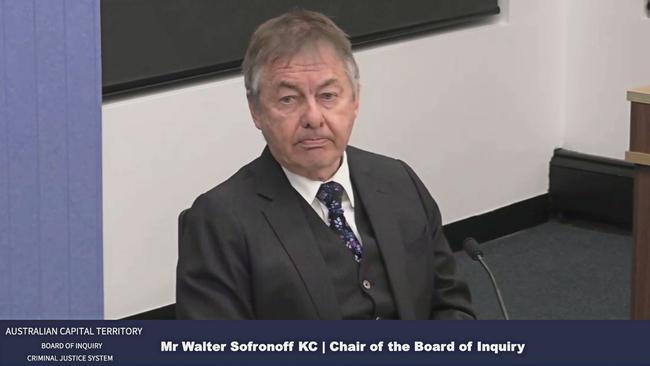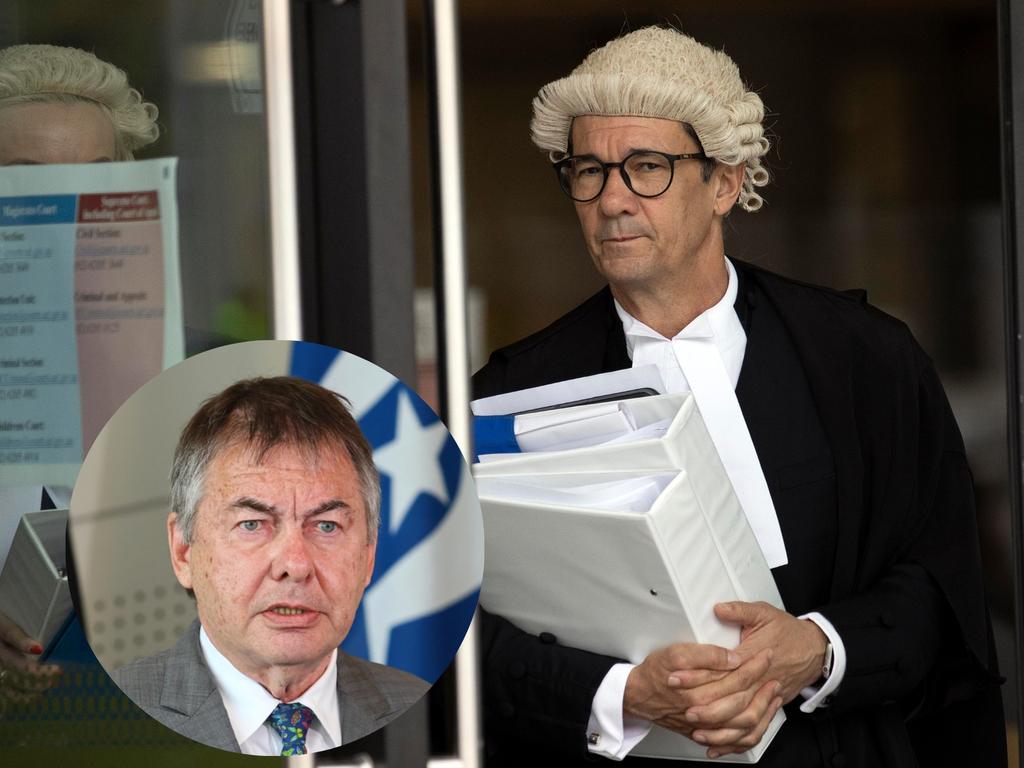Sofronoff case: who will watch the watchdogs if review right is denied?

Integrity bodies, such as the National Anti-Corruption Commission and judicial commissions, are given wide investigative powers. They are to act as watchdogs on politicians and the public service. But the question becomes: who watches the watchdogs?
Recently, the ACT Integrity Commission published a report that found Walter Sofronoff KC – a former senior Queensland judge who presided over an inquiry into the ACT’s justice system following Bruce Lehrmann’s criminal trial for allegedly sexually assaulting Brittany Higgins – to have engaged in “serious corrupt conduct”.
(The trial was aborted due to juror misconduct with no finding against Lehrmann, who has always maintained his innocence.)
The commission’s finding is a very serious one.
A finding that an individual has engaged in corrupt conduct may tarnish their reputation, destroy their career and inflict life-changing consequences.
Sofronoff contends the commission made legal errors in arriving at its report. He may be right. He may be wrong. But Sofronoff went to the one place that can decide authoritatively whether there was legal error at all: the courts. He sought judicial review of the commission’s decision.
Judicial review of an executive agency’s decision is available to every Australian who has a sufficient interest in the decision. If they can show legal error, the courts can quash the decision, issue a declaration about the error or use a wide range of remedies to deal with the error.
In Sofronoff’s case, however, the commission argued its decision could not be the subject of judicial review. It argued that, because its report was tabled in the Legislative Assembly, parliamentary privilege precluded judicial review because it would involve the court questioning or impeaching a parliamentary proceeding. The commission submitted to a Federal Court judge last week that, from the moment the report was tabled, there could be no judicial review. In essence, Sofronoff can’t have his day in court.

The commission’s contentions are deeply troubling and flawed. If accepted, it would insulate the national, state and territory integrity bodies – which all follow a similar structure of having their reports tabled in their respective parliament – from supervision by the courts.
Integrity bodies, like royal commissions, are given extraordinary powers. They can compel a person to give evidence, including evidence that may incriminate them. They can enter buildings of public authorities to inspect and copy documents. They can use surveillance devices and intercept telephone calls. The disastrous consequences if these powers were abused or exercised in bad faith emphasises the importance of judicial review being available. Judicial review ensures that decisions and reports are made within legal limits. It protects affected individuals by ensuring they are afforded procedural fairness – a fundamental common law right. It ensures that any finding of corrupt conduct must be based on facts and inferences supported by logical grounds. It ensures that an integrity body has acted within the statute that set it up.
Understanding what judicial review is also requires understanding what it is not.
Judicial review is not an appeal. It doesn’t look to see whether a decision-maker got it right or wrong. Courts don’t give judgment on whether the evidence is strong or weak. Judicial review simply operates to ensure that all executive agencies act within legal limits, do not act in bad faith and have followed all procedural requirements.
Perhaps the most troubling part of the commission’s argument is that it makes a mockery of parliamentary privilege. The purpose of parliamentary privilege is to protect free speech and ensure robust debate in the parliamentary chambers and committees. But judicial review of a report doesn’t affect what can be said and debated in parliament.
This case is more than just about Sofronoff.
It’s about every person who may interact with the government in the future. If “tabling reports prevents judicial review” becomes a magic formula, where could it be applied next? If the commission’s argument is upheld and it is shielded from judicial review, parliaments will need to limit the extraordinary powers granted to integrity bodies.
Judicial review is one of the bedrock safeguards in Australia. An independent judiciary supervising the legal limits of anti-corruption bodies and government agencies is key to maintaining integrity in our system of government. Without judicial review of their functions, integrity bodies will be permitted to exercise their rights in a manner untethered to their statutory obligations. This will impact on the rights of all citizens and allow integrity bodies to act with no integrity.
Arthur Moses SC is a former president of the Law Council of Australia. Dane Luo is the Farthing scholar in administrative law at Pembroke College, Oxford.




